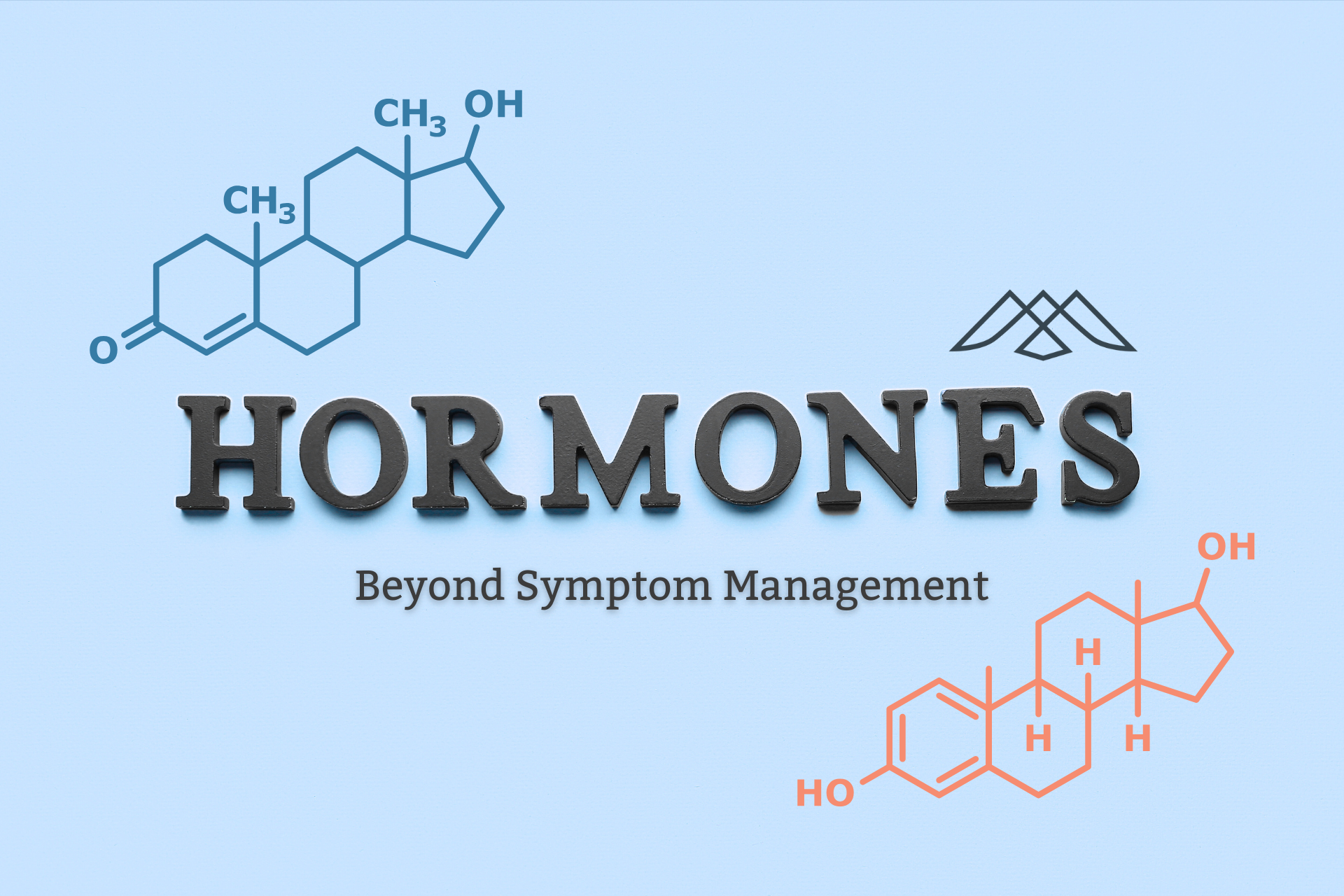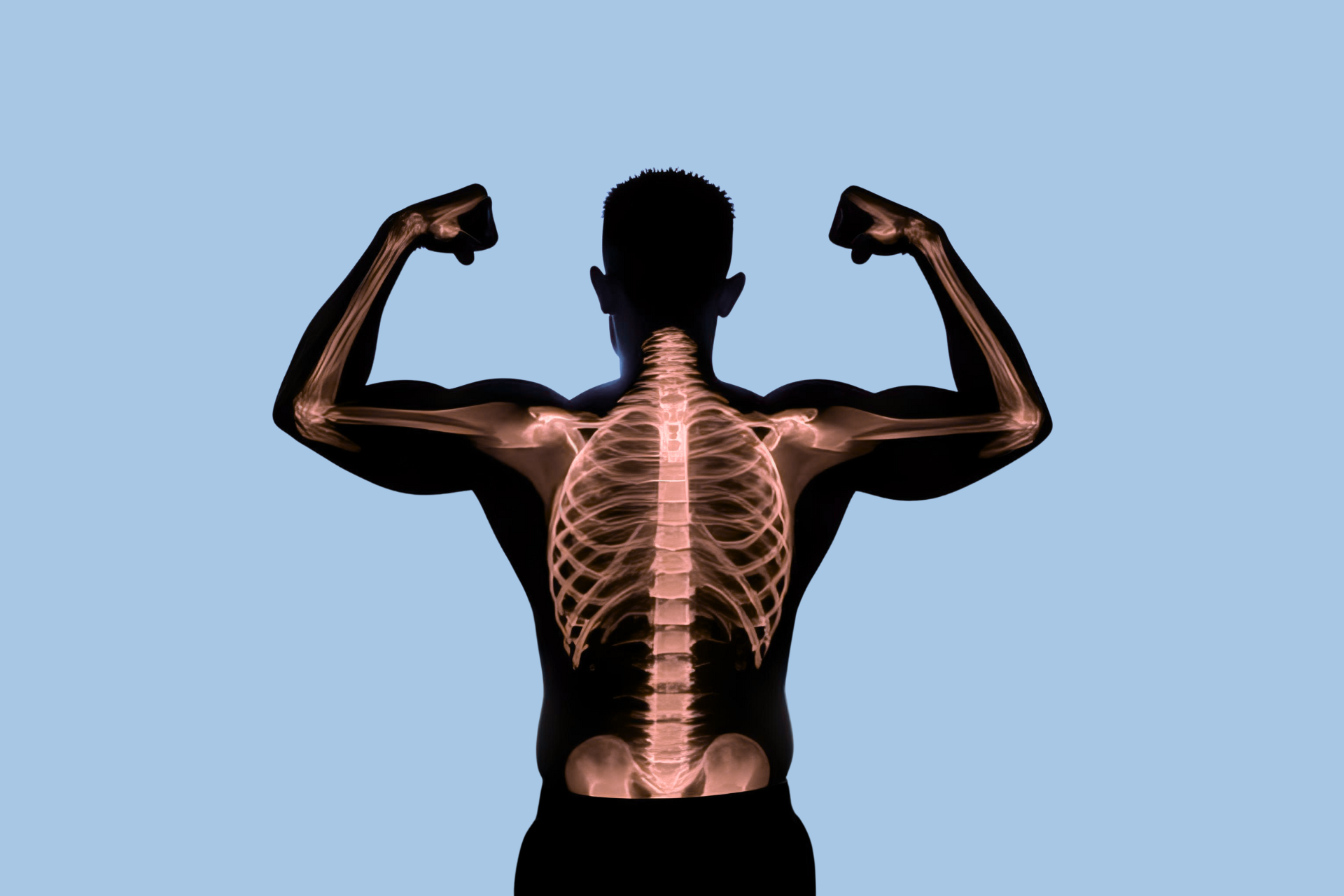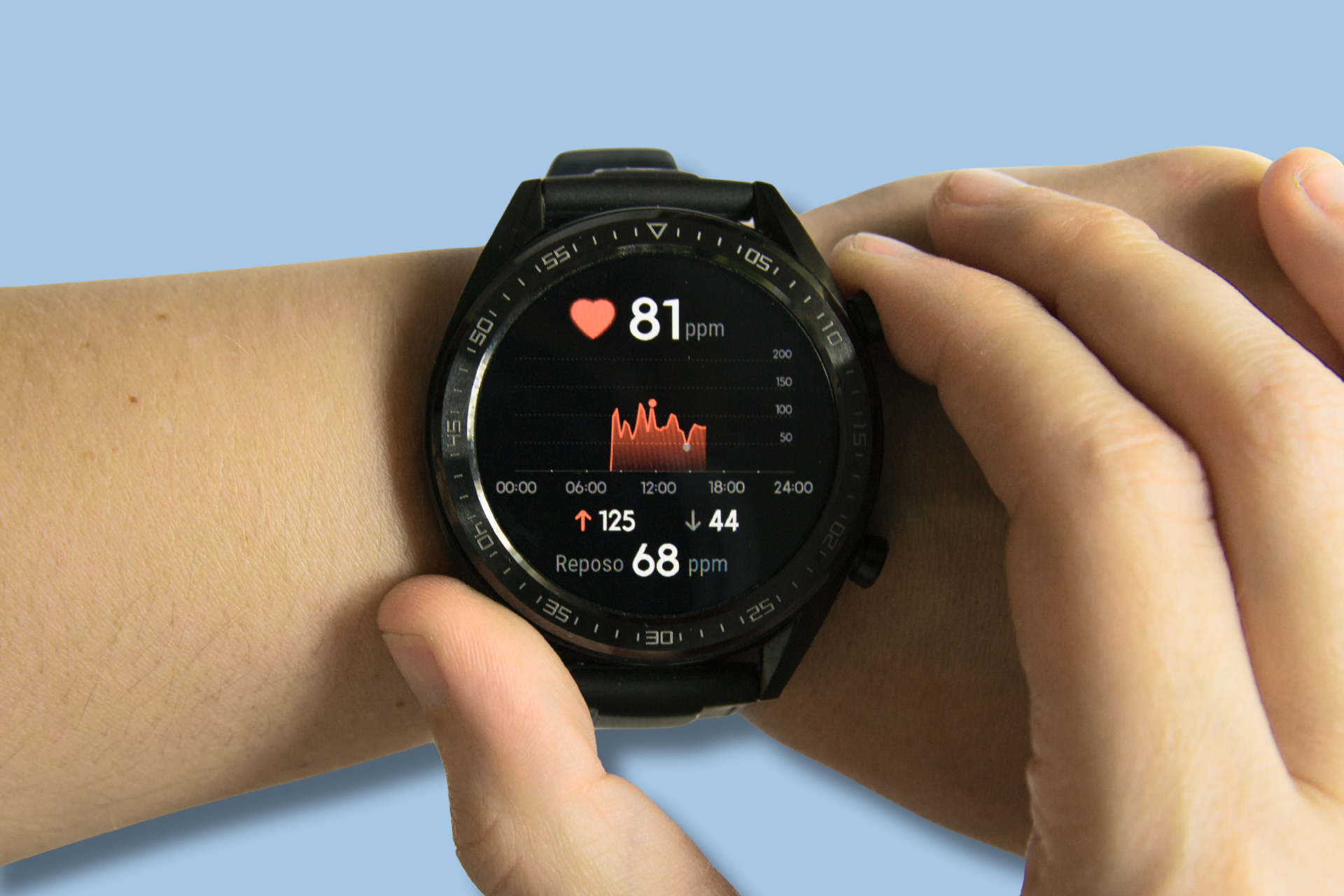Long-Term Health Benefits of Hormone Replacement Therapy (HRT) for Men and Women
Disclaimer: The content provided on this website is for informational and educational purposes only and is not intended as a substitute for professional medical advice, diagnosis, or treatment. The information presented does not constitute medical recommendations and should not be used to guide clinical decisions. Always seek the advice of a licensed healthcare provider regarding any medical condition or treatment. Do not disregard or delay professional medical care based on information found on this site. Some services may involve compounded medications that have not been reviewed by the FDA for safety or effectiveness; no therapeutic claims are made for these products. Visuals are for illustrative purposes only; individuals shown are not actual patients. Individual results may vary.
Understanding Hormone Replacement Therapy Beyond Symptom Relief
Hormone replacement therapy (HRT) is most often associated with easing the disruptive symptoms that accompany menopause in women or low testosterone in men. Hot flashes, night sweats, fatigue, mood swings, and brain fog are the issues people usually think of first. For men, declining testosterone—sometimes called “andropause”—may bring low energy, loss of muscle mass, changes in body composition, and difficulty concentrating.
While HRT can help with these short-term discomforts, the benefits extend well beyond symptom management. Hormones are chemical messengers that influence nearly every system in the body. When levels decline, the effects ripple out to bone density, brain health, cardiovascular function, and metabolic stability. Over time, low hormone levels raise the risks of osteoporosis, cognitive decline, heart disease, and shifts in fat distribution that increase cardiometabolic burden.
What’s important to recognize is that replacing and balancing hormones isn’t simply about feeling better in the moment—it’s a proactive, long-term investment in maintaining overall health, independence, and quality of life.
HRT for Stronger Bones and Reduced Fracture Risk
One of the most well-documented effects of hormonal decline is its impact on bone strength. Estrogen and testosterone both help regulate the process of bone remodeling, where old bone is broken down and new bone is built. Without sufficient hormones, bone loss accelerates.
In women, the sharp drop in estrogen at menopause is the leading cause of osteoporosis. Postmenopausal women lose bone density more rapidly, making fractures—particularly of the hip, spine, and wrist—far more common.¹ In men, the decline in testosterone is more gradual, but over time it also weakens bone structure and increases fracture risk.
Studies show that women who begin estrogen therapy around the time of menopause are more likely to maintain higher bone density and less likely to suffer fractures than women who do not use therapy.² For men with low testosterone, replacement therapy has been shown to improve bone thickness and structural integrity, reducing the risk of osteoporosis-related fractures.³
A hip fracture in older age can drastically reduce life expectancy and quality of life. By protecting bone health, HRT may contribute to maintaining mobility, independence, and the ability to stay active later in life.
HRT’s Role in Sharper Thinking, Sleep, and Brain Health
Cognitive health is another area where hormones play an important role. Estrogen, progesterone, and testosterone all affect brain chemistry, influencing memory, focus, and mood. Many women describe experiencing “brain fog” during menopause, while men with low testosterone often notice trouble concentrating, reduced motivation, or difficulty remembering details.
One key pathway through which hormones support brain health is sleep. Quality sleep is essential for memory consolidation and mental clarity. Unfortunately, hormonal changes often disrupt sleep patterns—women in menopause may struggle with insomnia or night sweats, and men with low testosterone often report poor sleep quality.
By restoring hormone balance, HRT may improve sleep, which in turn enhances daytime cognitive function. For women, estrogen and progesterone therapy can reduce sleep disturbances linked to menopause, helping support sharper thinking.⁴ In men, testosterone replacement has been associated with better sleep efficiency, which contributes to clearer cognition and more stable mood.⁵
Beyond sleep, hormones also affect the brain more directly. Estrogen, for instance, has neuroprotective effects—it supports synaptic health and blood flow in the brain, which may help slow age-related cognitive decline.⁴ Testosterone, similarly, has been shown in some studies to improve certain aspects of memory in men.⁵
Patients often describe the feeling of “waking up from a fog” after starting HRT. They feel more alert, focused, and emotionally balanced. While more research is ongoing, the link between hormone balance, sleep, and brain health suggests that HRT may play a role in maintaining long-term cognitive resilience.
Hormone Therapy for Heart Health and Metabolic Balance
Hormones are also deeply involved in cardiovascular and metabolic regulation, influencing how the body manages fats, cholesterol particles, blood pressure, and body fat distribution.
In women: Estrogen supports vascular flexibility and helps regulate the types of particles that carry cholesterol through the blood. When estrogen levels decline after menopause, there is often an increase in ApoB and LDL particles—the lipoproteins that transport cholesterol and contribute to plaque buildup in arteries. This, combined with a tendency toward more central (belly) fat, increases cardiovascular risk. Research shows that women who begin estrogen therapy close to the time of menopause may see slowed progression of arterial plaque and improved overall cardiovascular profiles.⁶,⁷
In men: Testosterone contributes to healthy body composition, glucose regulation, and lipid metabolism. Low testosterone is associated with increased abdominal fat, insulin resistance, and a rise in ApoB and LDL particles—factors that raise cardiovascular risk. Clinical studies indicate that testosterone replacement in men with low levels can improve lipid particle profiles, reduce central fat, and support healthier metabolism and cardiovascular outcomes.⁸,⁹
Is HRT Right for You? Personalized Treatment and Next Steps
Hormone replacement therapy is far more than relief from hot flashes, night sweats, or fatigue. For both men and women, it can:
Strengthen bones and protect against fractures
Support sharper thinking, better sleep, and long-term brain health
Promote cardiovascular wellness and healthier metabolism
Of course, HRT is not a one-size-fits-all solution. Decisions about therapy should be made in collaboration with an experience provider, considering each individual’s symptoms, lab results, and health history. When monitored appropriately, HRT can be a powerful tool for both improving quality of life now and reducing long-term health risks in the future.
If you’ve been struggling with the effects of menopause, andropause, or just suspect your hormones may be holding you back, don’t wait until symptoms worsen or health risks increase.
Reach out today to schedule a FREE Call with Superior Health & Wellness’ Care Team, and learn more about how you can take the next step toward feeling stronger, clearer, and healthier for years to come.
Book a FREE Care Call Today to explore how we can help you feel your best.
Disclaimer: The content provided on this website is for informational and educational purposes only and is not intended as a substitute for professional medical advice, diagnosis, or treatment. The information presented does not constitute medical recommendations and should not be used to guide clinical decisions. Always seek the advice of a licensed healthcare provider regarding any medical condition or treatment. Do not disregard or delay professional medical care based on information found on this site. Some services may involve compounded medications that have not been reviewed by the FDA for safety or effectiveness; no therapeutic claims are made for these products. Visuals are for illustrative purposes only; individuals shown are not actual patients. Individual results may vary.
FAQ: Hormone Replacement Therapy (HRT) for Men and Women
-
Hormone replacement therapy supports long-term wellness by improving bone strength, maintaining cardiovascular health, and promoting mental clarity. It can help reduce the risks of osteoporosis, heart disease, and cognitive decline associated with hormonal changes in both men and women.
-
When prescribed and monitored by a qualified healthcare provider, HRT is considered safe for most patients. Therapy plans are personalized based on individual lab results, health history, and ongoing monitoring to reduce risks and optimize outcomes.
-
Many patients begin to notice improvements within a few weeks, such as better sleep, energy, and mood balance. However, the full benefits—like bone density improvement or cardiovascular support—may take several months of consistent therapy and follow-up care.
-
Yes. Balanced hormone levels influence metabolism, energy expenditure, and body composition. Estrogen and testosterone both play roles in how the body stores and utilizes fat, and proper hormone replacement can support a healthier metabolism and improved body composition over time.
-
Potential side effects depend on the type, dosage, and delivery method of hormone therapy. Common side effects may include bloating, breast tenderness, or mild fluid retention. Serious risks are rare but may include clotting disorders or changes in lipid levels. That’s why ongoing lab monitoring and provider supervision are essential to ensure safety.
-
Yes. Comprehensive lab testing is required to assess hormone levels and determine whether HRT is appropriate for your health needs. Regular follow-up labs ensure that dosages remain safe and effective over time.
-
Yes. Hormone replacement therapy can be prescribed and managed through telehealth visits in most states, as long as the clinic and providers follow state-specific telemedicine laws. At Superior Health & Wellness, licensed providers in Texas and Florida offer virtual consultations and ongoing support through a secure, HIPAA-compliant platform.
Telehealth Compliance: Superior Health & Wellness operates under all applicable state telemedicine laws and HIPAA regulations to ensure the confidentiality and protection of patient health information. Prescriptions and treatment plans are issued only after a licensed provider review, clinical assessment, and, when appropriate, lab testing. -
HRT is never one-size-fits-all. Providers tailor treatment plans based on your hormone profile, age, symptoms, and long-term health goals. Dosages are adjusted over time to maintain balance and minimize risks, ensuring therapy supports your overall wellness.






